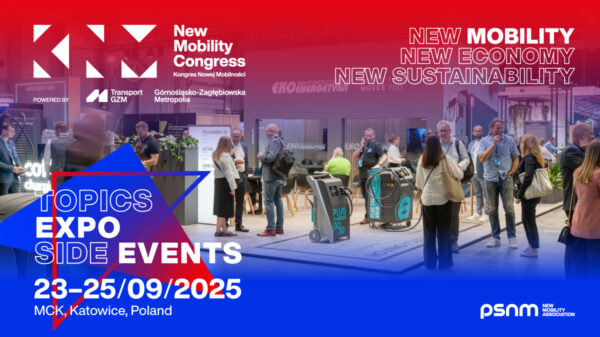The development of hydrogen refuelling station networks as a way to achieve climate neutrality
- What is the current status of the European hydrogen and fuel cell market with regard to both green hydrogen production and the projected infrastructure for the automotive industry?
- What are the local challenges in achieving clean hydrogen production and promoting hydrogen-based transportation?
Selected issues
- Hydrogen in transport: cars, shipping, rail and aviation
- Green hydrogen – the basis for a clean economy of the future
- FCEV vs. H2 ICE – R&D trends
- Polish Hydrogen Strategy
- Hydrogen – the most efficient RES energy storage
- Supporting instruments for hydrogen in transport
- Hydrogen refuelling infrastructure – costs and barriers
- Hydrogen mobility in cities
- Market overview and regulatory analysis
- Case studies of infrastructure development
DESCRIPTION
Hydrogen, which was discovered in 1671 and accounts for 79% of the total mass of the universe, has become a crucial topic in discussions surrounding the future of energy and energy-intensive industries. It has been referred to in many different colours, but it is becoming increasingly clear that green hydrogen, produced by electrolyzing water using renewable energy, will play a pivotal role in the future of the economy. This is particularly important because hydrogen will serve as the energy vector for the development of sustainable sectors such as energy, fuel, heating, and transport. However, the impact on the transport sector will depend heavily on the pace of development of hydrogen propulsion technology.
The International Energy Agency (IEA) predicts that global hydrogen production will soar by 91% by 2031, reaching a staggering 180 million tonnes. Accompanying this growth, there is expected to be a significant 54% reduction in the global average carbon intensity of hydrogen production during this period. Additionally, the IEA projects that by 2030, electricity will meet 40% of the world’s fuel demands for hydrogen production. These promising trends indicate the massive potential of hydrogen in the vital task of decarbonizing the global economy.
At present, China leads the world in hydrogen consumption, using approximately 24 million tonnes each year. The European Union, the United Kingdom, and the Russian Federation each demand around 6 million tonnes annually. However, the sub-Saharan African region, the Middle East, and North Africa hold the most extensive technical potential for green hydrogen production worldwide. Germany and the Netherlands currently lead the way in green hydrogen production in Europe, with Poland also featuring among the top five countries, generating 55% of the total hydrogen production in the EU and UK. In 2020 alone, Poland produced 1.03 million tonnes of hydrogen.
Currently, Poland’s demand for hydrogen stands at approximately 40 TWh, but it is expected to skyrocket to 120 TWh by 2050. Recognizing the country’s enormous potential for hydrogen production and demand, the Polish government recently adopted the Hydrogen Strategy to 2030 with an Outlook to 2040 on December 7, 2021. The strategy sets a goal of having 50 MW of installed capacity for low-emission hydrogen production up and running in Poland by 2025. In terms of transportation, the country is poised to introduce between 100 and 250 new hydrogen buses by 2025, along with at least 32 public hydrogen refuelling stations (HRS).
The direction of hydrogen technology development is undoubtedly positive, but it still requires significant support from public administration stakeholders and the market. We still have enormous challenges with the complexity of hydrogen storage and transport processes with additional energy losses, the higher costs of hydrogen drives compared to other zero-emission drives, the need for large amounts of energy in hydrogen production, the still dominant use of fossil fuels in hydrogen production and the expensive and underdeveloped hydrogen refuelling infrastructure.
To address these challenges, the New Mobility Congress will convene stakeholders from across the European Union and the CEE region to seek guidance on accelerating the development of green hydrogen technology. This collaborative effort promises to be a significant step forward in building the competitiveness of the European economy.
Contact
PRESS OFFICE
New Mobility Congress 2023
Maciej Gis
Press Officer
maciej.gis@pspa.com.pl
biuro@kongresnowejmobilnoci.pl
+48 606-740-357



